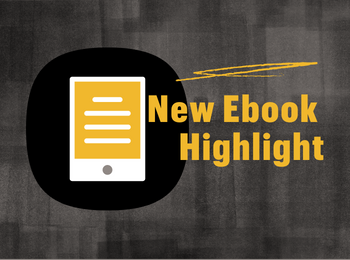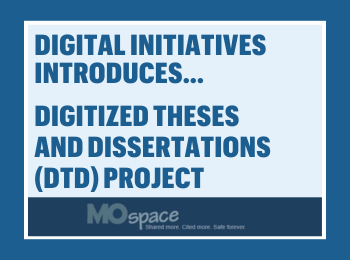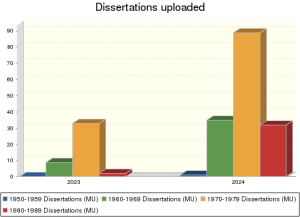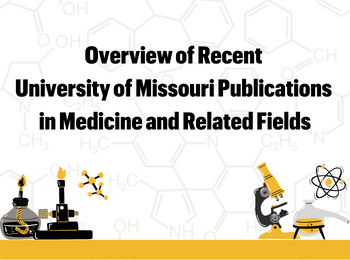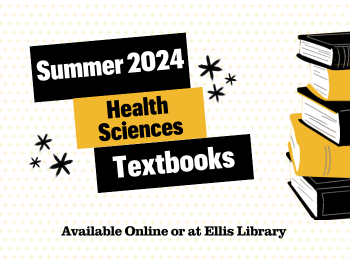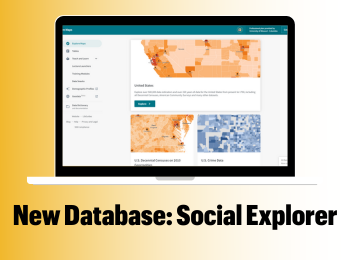It’s officially Pride Month and to help celebrate this month of love and acceptance, we asked our Mizzou Librarians what stories they’d like to celebrate.
Below are just a few of the recommendations that tell stories of triumphs and struggles of the LGBTQ community, all of which are available to request. You can view the whole list of recommended reads here.
Be sure to search the library catalog to see what else we have.
Have book recommendation? Let us know here.
Birthday
Eric and Morgan decided they were best friends for life. They’ve stuck by each other’s side as Morgan’s mom died, as he moved across town, as Eric joined the football team, as his parents started fighting. But Morgan feels trapped in a mixed-up body, in a wrong life, in Nowheresville, Tennessee, on repeat. With a dad who cares about his football team more than his son, and a best friend who can never know his biggest secret. Six years of birthdays reveal Eric and Morgan’s destiny as they come together, drift apart, fall in love, and discover who they’re meant to be– and if they’re meant to be together.
Golden Boy 
The Walker family is good at keeping secrets from the world. They are even better at keeping them from each other. Max Walker is a golden boy, with a secret that the world may not be ready for. This novel is a riveting tale of a family in crisis, a fascinating exploration of identity, and a coming-of-age story like no other.
I am Your Sister: Collected and Unpublished Writings of Audre Lorde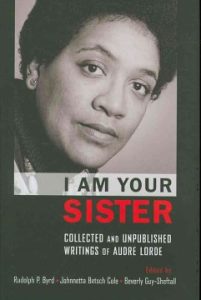
I Am Your Sister is a collection of Lorde’s non-fiction prose, written between 1976 and 1990, and it introduces new perspectives on the depth and range of Lorde’s intellectual interests and her commitments to progressive social change. Presented here, for the first time in print, is a major body of Lorde’s speeches and essays, along with the complete text of A Burst of Light and Lorde’s landmark prose works Sister Outsider and The Cancer Journals. Together, these writings reveal Lorde’s commitment to a radical course of thought and action, situating her works within the women’s, gay and lesbian, and African American Civil Rights movements.
Legends & Lattes
After a lifetime of bounties and bloodshed, Viv is hanging up her sword for the last time. The battle-weary orc aims to start fresh, opening the first ever coffee shop in the city of Thune. But old and new rivals stand in the way of success — not to mention the fact that no one has the faintest idea what coffee actually is. If Viv wants to put the blade behind her and make her plans a reality, she won’t be able to go it alone. But the true rewards of the uncharted path are the travelers you meet along the way. And whether drawn together by ancient magic, flaky pastry, or a freshly brewed cup, they may become partners, family, and something deeper than she ever could have dreamed.
Out at the Movies: A history of Gay Cinema
Over the decades, gay cinema has reflected the community’s journey from persecution to emancipation to acceptance. Politicised dramas like Victim in the 60s, The Naked Civil Servant in the 70s, and the AIDS cinema of the 80s have given way in recent years to films which celebrate a vast array of gay life-styles. Gay films have undergone a major shift, from the fringe to the mainstream and 2005s Academy Awards were dubbed the Gay Oscars with gongs going to Brokeback Mountain, Capote and Transamerica. Producers began clamouring to back gay-themed movies and the most high profile of these is Gus Van Sant’s MILK, starring Sean Penn as Harvey Milk, the first prominent American political figure to be elected to office on an openly gay ticket back in the 70s. The book also includes information on gay filmmakers and actors and their influence within the industry. Interspersed throughout the book are some of the most iconic scenes from gay cinema and the most memorable dialogue from key films.
Stella Brings the Family
Stella’s class is having a Mother’s Day celebration, but what’s a girl with two daddies to do? It’s not that she doesn’t have someone who helps her with her homework, or tucks her in at night. Stella has her Papa and Daddy who take care of her, and a whole gaggle of other loved ones who make her feel special and supported every day. She just doesn’t have a mom to invite to the party. Fortunately, Stella finds a unique solution to her party problem in this sweet story about love, acceptance, and the true meaning of family.
